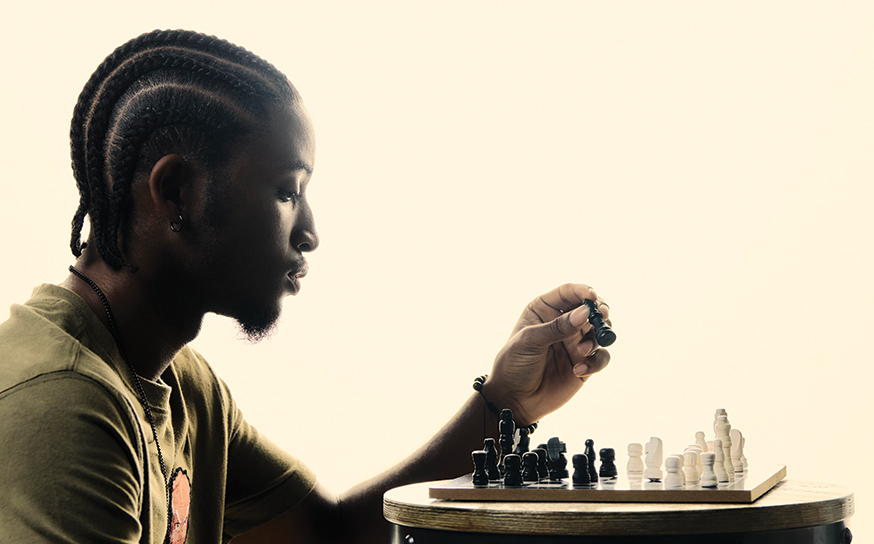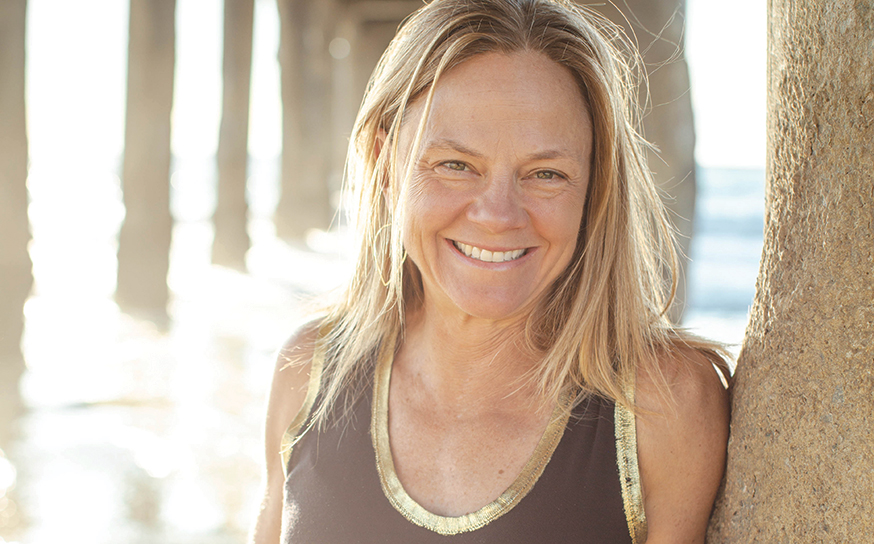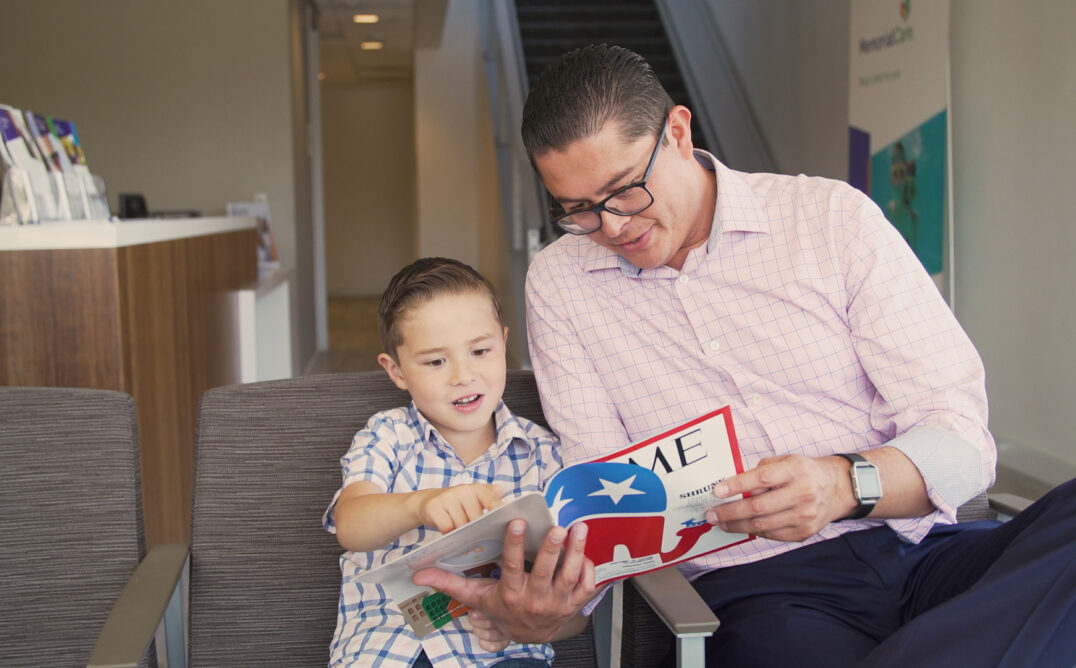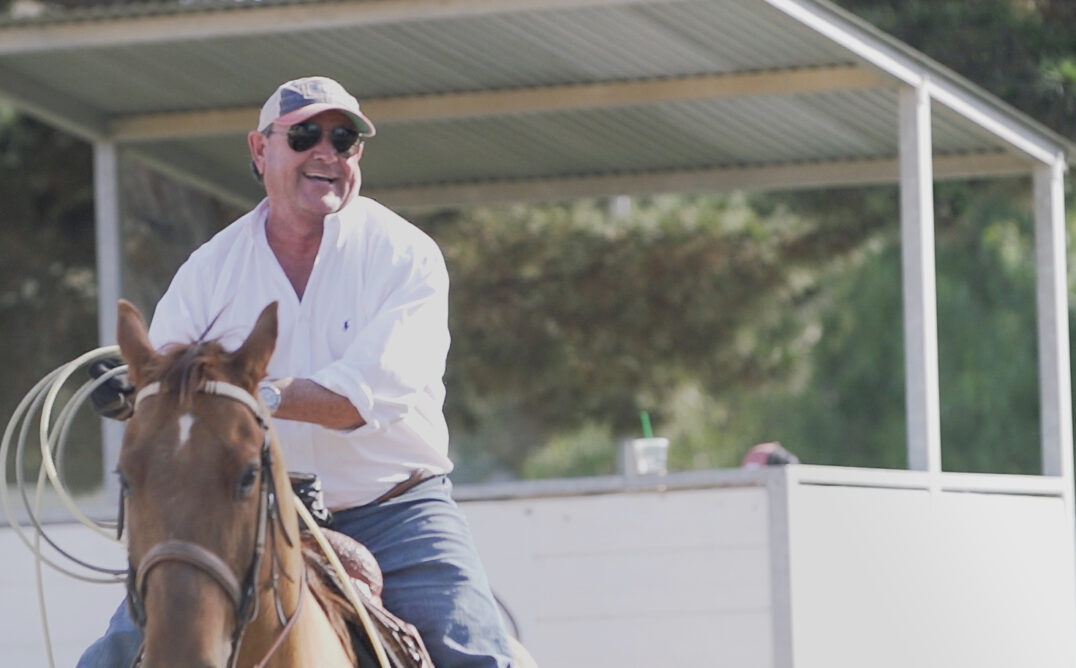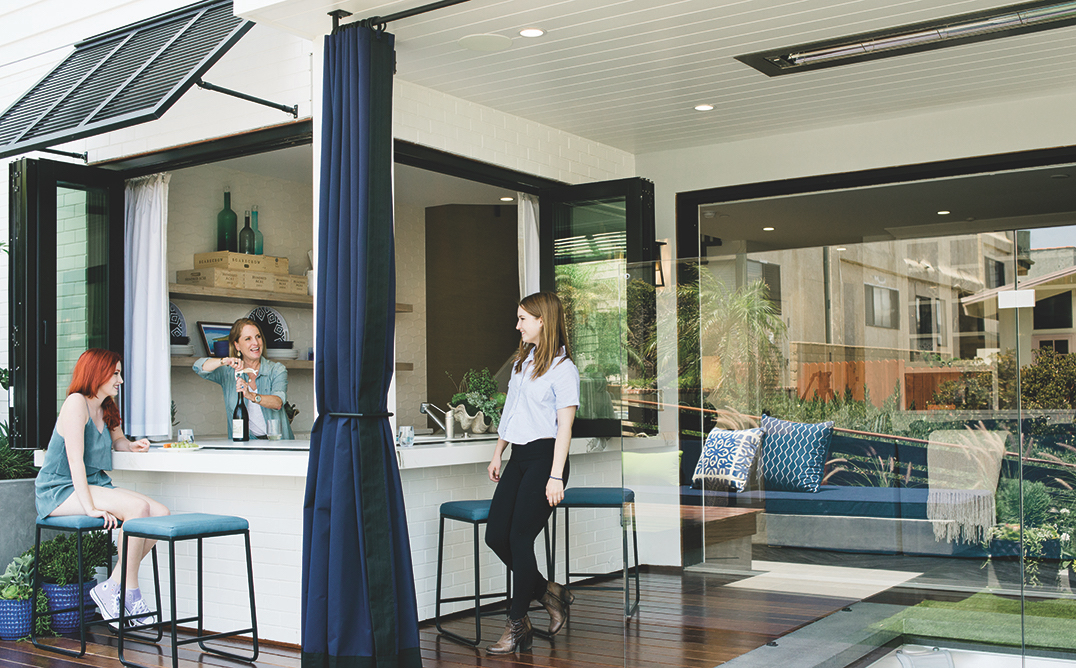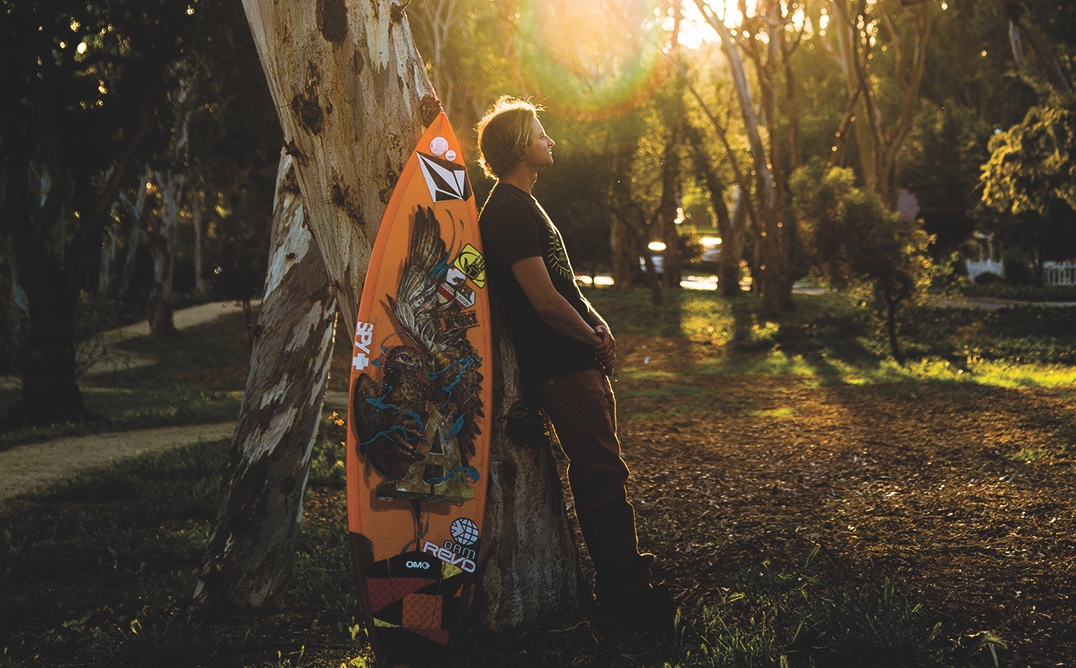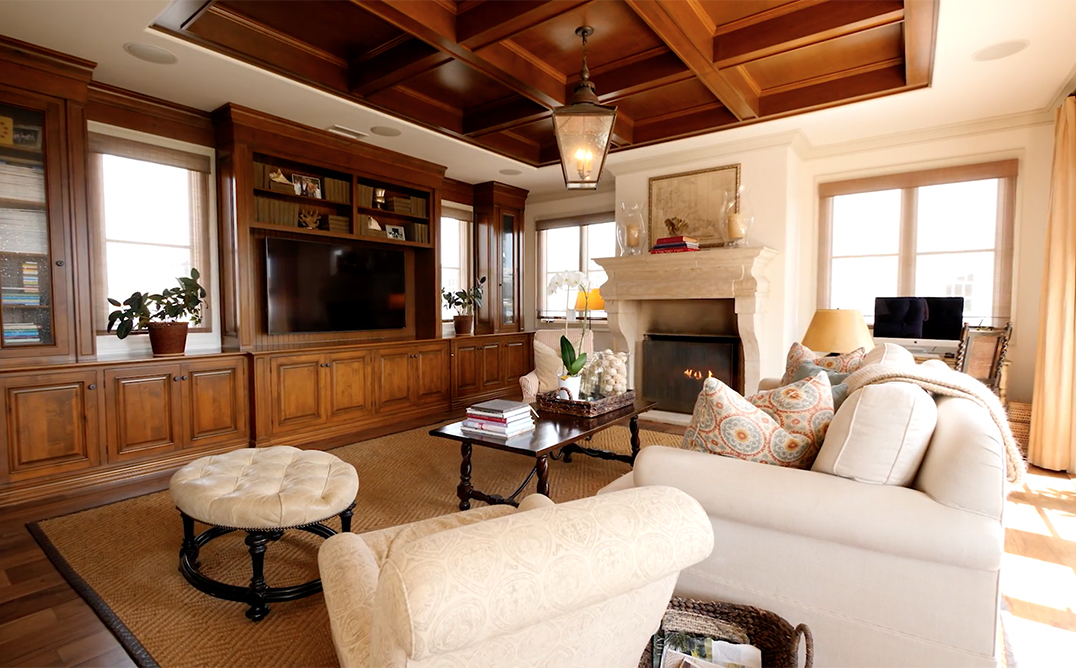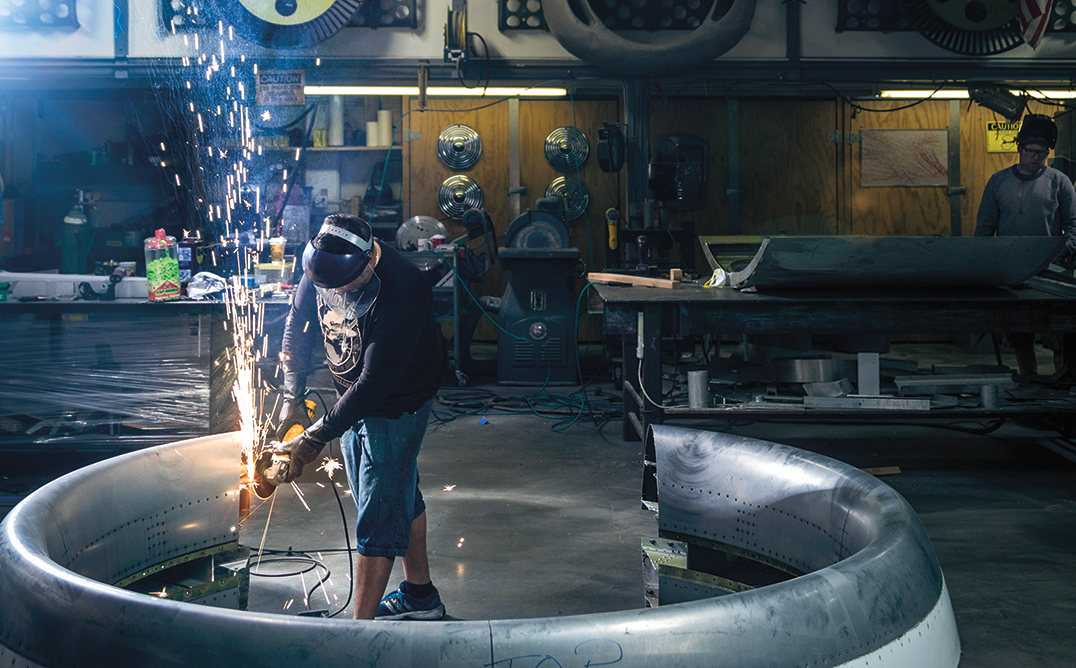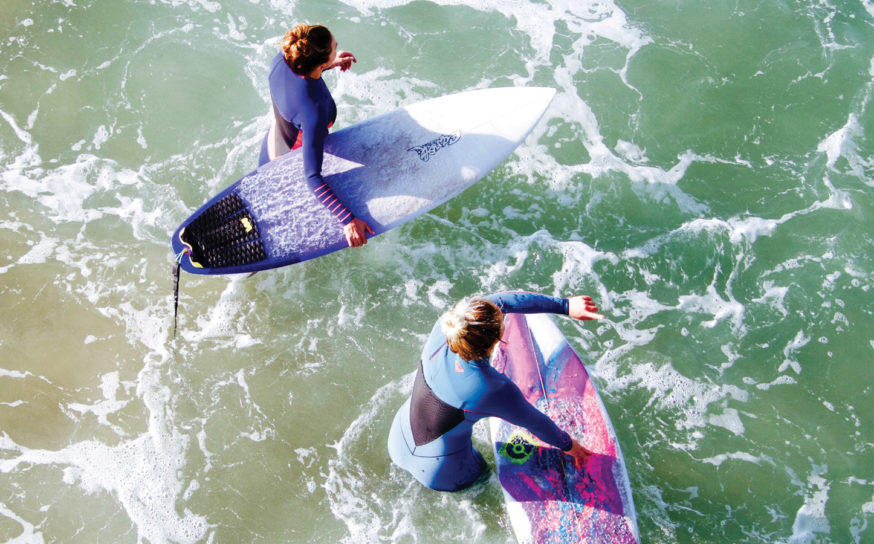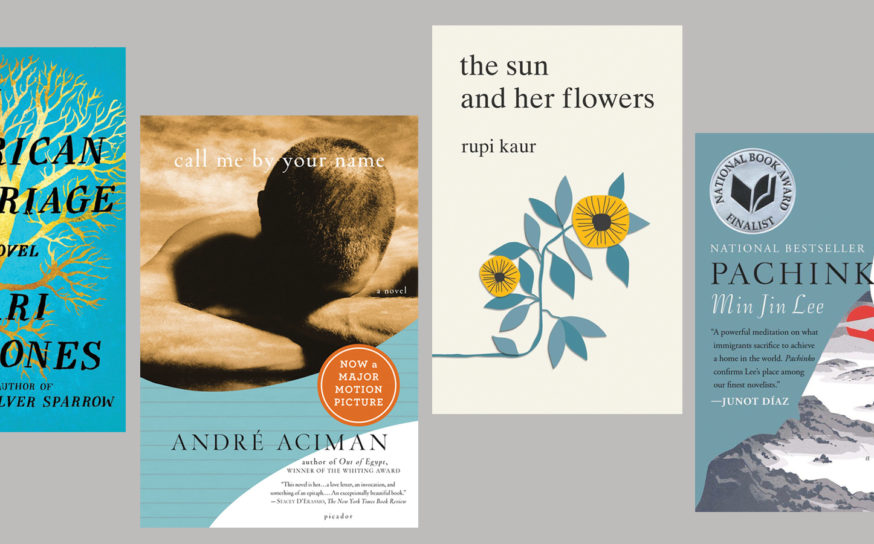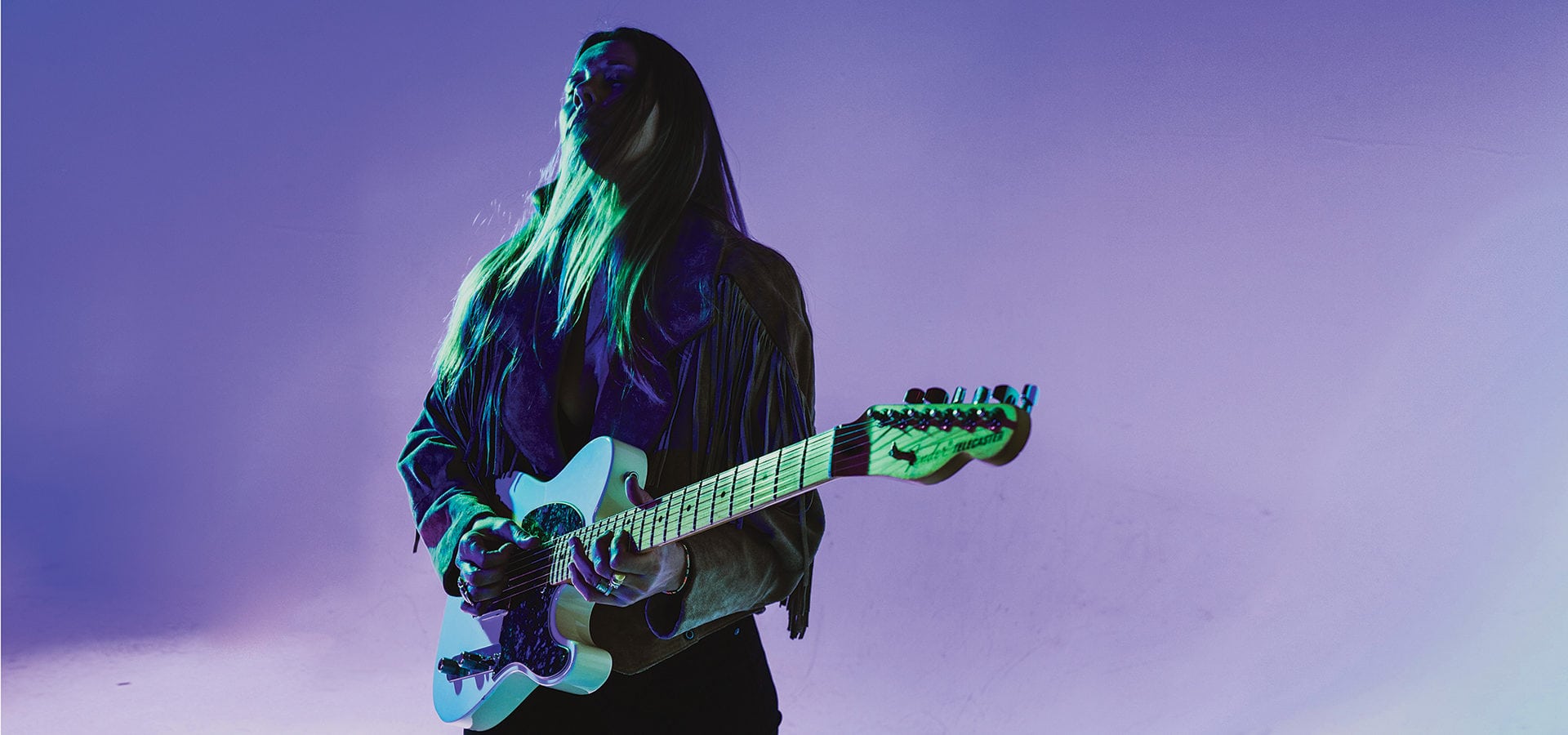
Blues Guitarist and Singer Kira Lingman Finds Her Groove
Blues in her bones.
- CategoryPeople
- Written bySara Debevec
- Photographed byJL Cederblom
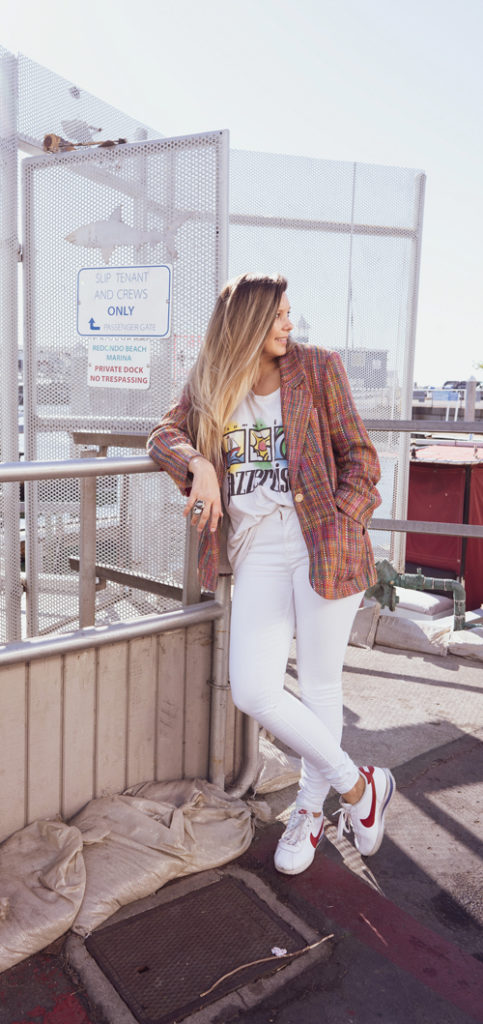 I met Kira Lingman (aka Bones) at a dinner party hosted by a mutual friend, Mande Dahl, early in 2020. It was a get-together of South Bay artists, musicians and creators who were organizing a teen music and mental health festival that was to take place in Hermosa last summer. As I did my rounds of introductions, Bones stood out to me with her long, straight hair, leather jacket and an air of rock ‘n’ roll.
I met Kira Lingman (aka Bones) at a dinner party hosted by a mutual friend, Mande Dahl, early in 2020. It was a get-together of South Bay artists, musicians and creators who were organizing a teen music and mental health festival that was to take place in Hermosa last summer. As I did my rounds of introductions, Bones stood out to me with her long, straight hair, leather jacket and an air of rock ‘n’ roll.
“My father gave me that nickname when I was like 4 or 5 years old, or whenever you learn how to rhyme!” she recalls. “We were driving, and he asked me to rhyme words. He was like, ‘OK now, what rhymes with your name?’ which is kind of hard since nothing really rhymes with my name. I said ‘Bones,’ and the nickname stuck!”
Growing up in Manhattan Beach, Kira was drawn to blues and rock. Led Zeppelin, Albert King, B.B. King and Muddy Waters inspired her from an early age. She was drawn to music with soul that was not over-produced.
“When I was younger, I’d say, ‘I want to sing like Peggy Lee and be really raw like Janis Joplin and have the warmth of Patsy Cline.’” Determined to be a blues guitar player, she took up the instrument in high school. “I would play in my bedroom,” she shares. “I didn’t form a band or anything. It was something that was for me very cathartic. I just wanted to play blues.”
After graduating from Arizona State, Kira came back to the South Bay and started working at Becker Surfboards, which also became her recording studio. It was there she met Zach Bozeman, and together they started The Hollow Legs.
“He did the drums and bass, and I did the guitar work, harmonica and singing,” she says. “We put this album together and recorded it in the surf shop after hours, which was cool. People who were getting dinner would walk by and be like, ‘Oh, there’s an actual band playing in there!’ That’s the evolution of The Hollow Legs.”
Kira and Zach honed their creative style for years, and in 2018 they added multi-instrumentalist Hugh DeFrance to play bass. “My bass player, Hugh, is a phenomenal guitarist and bassist, and he adds such a great element on the back line with Zach, whose drumming style is so unique,” Kira says. “It’s awesome having those two guys backing me up, ’cause the two of them together really find that groove that’s reflective of great musicians.”
“It’s cool to see more and more women being outspoken, especially about their art and music, hopes and dreams.”
With the newer material they are writing, Kira has challenged herself to be more introspective. Noting their earlier music was “simpler,” she believes the current work has more meaning, reflecting the evolution of the band, creatively and spiritually.
On February 14 they released a studio version of their newest song, “G Song Groove,” recorded on tape to preserve the warmth of the music. “It’s recorded on tape and then we digitize it,” she says. “We wanted to record those songs [the way] bands did in the past. We have a 16-track tape recorder, and we decided to use it. I am excited for the new stuff that is about to come out.”
As music is a part of Kira’s soul, she doesn’t pay much attention to how many times the music is streamed. “It’s more about the process and these connections you make with your band members and challenging yourself creatively and honing your craft,” she shares. “That’s what I want to continue doing.”
Kira would like to see more women in the music industry. According to Amplify Her Voice—a platform created to promote gender equality in the music industry—only 22% of the business is female.
“I am a woman who is a singer-songwriter, guitarist and manager of a band—and that is rare,” she explains. “To be outspoken as a woman is hard. It’s cool to see more and more women being outspoken, especially about their art and music, hopes and dreams. We are not falling into stereotypical norms when it comes to anything.”
While Kira and the band wait out quarantine, they look forward to playing at their regular haunts like Hermosa Saloon. “Part of playing a show is seeing everyone scrunched up together, and there is a beauty of that collective being,” she says. “I am waiting for those days.”
Southbay ‘s Annual Spring Style Guide Has the Latest Fashion Trends, Jewelry, Home Goods and Gifts!
Shop local and support our amazing businesses.







